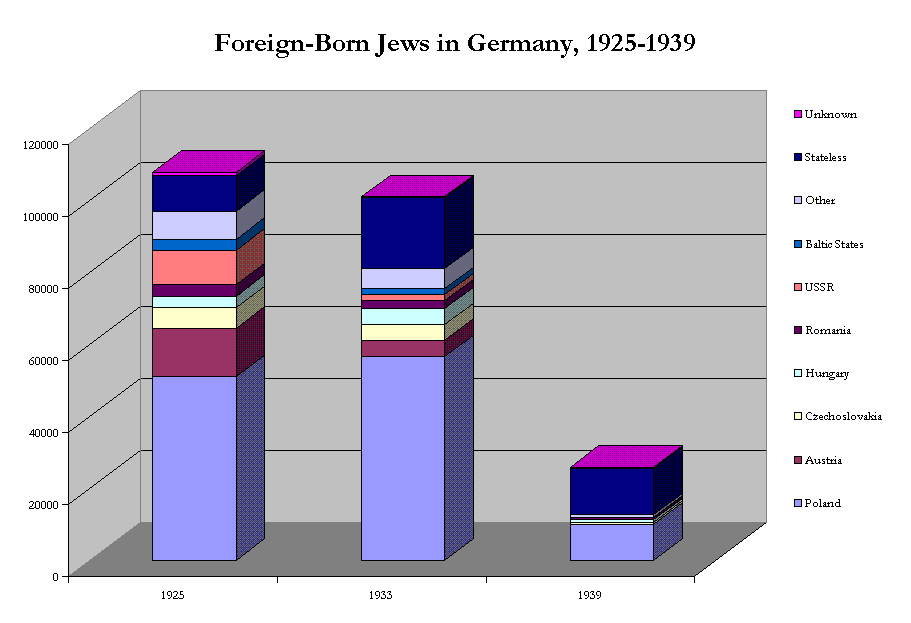
Though National Socialist policy toward German Jews evolved in fits and starts until the radicalization of 1937, policy toward foreign-born Jews resident in Germany was relatively consistent, at least in theory if not in practice. On 14 July 1933, the government decreed a "Denaturalization Law" which enabled it to revoke the citizenship of people it considered undesirable. This law could be applied to anyone who had settled in Germany after18 November 1918 (in other words, anyone who had received citizenship during the Weimar Republic). According to an Interior Ministry regulation of 26 July 1933, the law would apply first and foremost to the over 100,000 foreign-born Jews living in Germany. By itself, this law had little immediate effect: few foreign-born Jews had become German citizens since 1918, and the impact of outright expulsion on Germany's foreign relations forbade so drastic an intervention. Actual deportations followed the extension of the Denaturalization Law to Austria, annexed in March 1938. In March and again in October, tens of thousands of foreign-born Jews, the majority from Poland, were expelled, thereby reducing the total foreign-born Jewish population by almost 75%.
Source: S. Adler-Rudel, Ostjuden in Deutschland, 1880-1940 (Tübingen: Mohr, 1959), 166.
Return to 443/543 Homepage